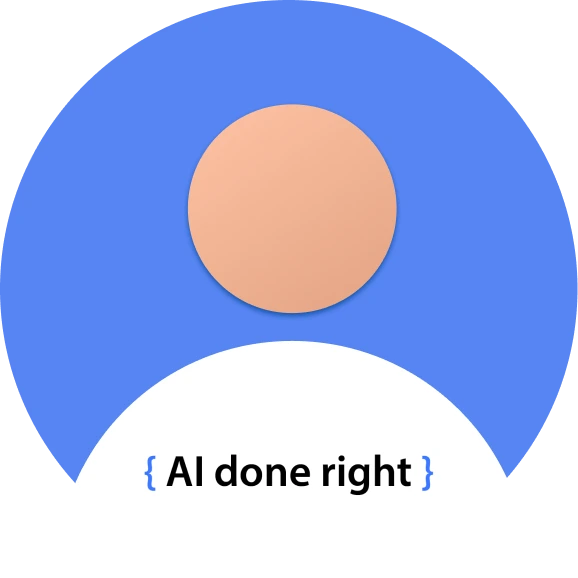Modern web application development is the cornerstone of business development and, market share and competitiveness for sectors like banking, healthcare, and retail among others. That means software releases must be stable, agile, and fast. To achieve this goal, IT organizations draw on two forms of software development and modernization: DevOps and Build and Release Engineering.
DevOps and Build and Release Engineering Aren’t Conflicting Approaches
These two approaches work together in CI/CD (Continuous Integration & Continuous Delivery) software development environments.
The Origins of DevOps Engineering
In early software development, the typical organization had two main IT groups.
First, you had UI developers who mainly focused on building software products with the latest features and technologies. Second, you had IT operations people who, above all, had focused on keeping the software build stable.
This earlier approach to software development saw constant clashes between developers and IT ops people. The developers asked, “Hey, why aren’t we updating our apps?” And IT ops responded with, “because you haven’t tested your code, and it isn’t ready for release.”
The truth is that neither side was wrong since remaining competitive has always meant consistently updating your applications with new features. The challenge is that adding those new features cannot result in downtime that will lead to customer loss.
The industry came up with DevOps to reconcile these opposing forces, which essentially began with developers and IT operations people teaching each other their trade to foster reaching a common goal through collaboration. This helped organizations cut down on the finger-pointing between developers and operations.
It ultimately led to a system where the developer was accountable for their code throughout the process (i.e., development, testing, production, etc.).
However, since then, DevOps evolved into much more than developer-operations teamwork — the ‘DevOps Engineer’ is an automation specialist.
See How Kubernetes Slashes
Your Time-to-Market & Costs
Discover The 7 Benefits of Kubernetes
DevOps Today: The Automation Specialist
Today’s DevOps person is responsible for automating cloud deployments. They do this by managing CI/CD pipelines, writing Infrastructure as Code (IaC), and configuring tools. Cloud automation is an integral piece of cloud-native software engineering that takes DevOps to a higher level by providing greater stability along with faster delivery and output.
As an example, DevOps ensures stable release management by automating your backups and disaster recovery. The DevOps specialist will write an IaC script that’ll make recovering the data a swift process and, in turn, reduce downtime.
Another example is how DevOps’ configuration management support lets you set-up a wide range of tools to automate testing, quality assurance, disaster prevention, etc. These and other examples show how DevOps creates new and more specialized roles that make it a stronger and more useful approach to web application development. One of those is the role of the build and release engineer.
Build and Release Engineers
The goal of a Build & Release Engineer is to release better quality software at a consistent and frequent rate. In other words, achieve stability and stay ahead of the market while keeping everyone together throughout the process. Although this role shares a lot in common with the stability-focused IT operations people of the past they do far more, as their work includes:
Version Control
They will add traceability to the code to make it more reliable and use Git and other tools as version control repositories.
Automate Build & Release Processes/Pipelines
Build & Release Engineers will integrate CI/CD to raise the speed and reliability of your software releases.
Configuration Management
These engineers will also ensure consistency across your software cycle: development, testing, staging, and production.
Production & Deployment
Finally, Build & Release Engineers will also help with troubleshooting and bug-fixing by tying all your production-stage releases to their origin. So, if there’s a problem, the engineers will trace it back to the source, and solve the problem from that point.
Build and Release requirements lean heavily on automation to release consistently stable software that eliminates human error.
Need Help Managing Your DevOps Environment?
- The Complete Guide to What is Kubernetes
- The Difference Between Docker and Kubernetes
- The Challenges Faced with Kubernetes Deployments
Taking Application Development to the Next Level for Business Outcomes
DevOps and Build & Release Engineering play a vital role in driving the development of cloud-native applications . This opens major benefits of cloud computing and applications. For businesses.
Every industry from banking and healthcare to retail, manufacturing, and beyond relies on applications to streamline internal operations or as the foundation of business growth with customer facing applications. Your business can only thrive if you identify the mission-critical legacy monolithic applications that can bring big benefits by transforming them into cloud-native apps.
This sets the stage for the use of containerized applications and cloud-native microservices architecture to provide greater stability, scalability resiliency, and security to grow market share and remain competitive. Achieving that requires a complete team of experienced DevOps engineers who know how to use a lot of CI/CD tools, cloud hosting environments, etc.
The Techolution team can partner with your organization to help you do the following:
Create a formal AppDev environment with CI/CD pipeline
- Support Web application Development
- Develop and implement hybrid and multi-cloud strategy
- Cloud migration strategy, support, and implementation
- Cloud managed services
- Provide knowledge sharing for DevOps team development
- Support for delivering containerized applications, cloud-native microservices architecture, Kubernetes multi-cloud architecture, hybrid and multi-cloud strategies, and more
- Healthcare, Fintech and ecommerce app development support
- Coordinate and manage multiple complex application release across different cloud platforms
To learn how Techolution’s team of veteran DevOps experts can cut your time-to-market for deploying your first cloud-native applications in just weeks, visit our cloud modernization web page. Then, give us a call to discuss your specific needs and how we can get started.
